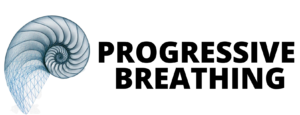Unmasking the Hidden Costs of a Dysfunctional Habit—and Why Nasal Breathing is the Key to Human Health
Have you ever stopped to think about how you breathe?
Not when you’re meditating. Not during yoga.
Just in daily life—right now.
Are you breathing through your nose… or your mouth?
If it’s the latter, you’re not alone. But you are, unfortunately, breathing in a way that compromises nearly every system in your body.
Mouth breathing isn’t just an innocent bad habit—it’s a root-level dysfunction with cascading consequences for your physical health, mental clarity, facial structure, and nervous system regulation.
Worse still: no one is teaching us the right way to breathe.
Why? We’ll get to that. But let’s start with what you should be doing.
The Forgotten First Pillar: Nasal Breathing
Breathing is the first thing you do when you’re born and the last thing you do before you die. Yet somewhere along the way, we forgot how to do it right.
Nasal breathing is the body’s default, evolutionarily optimized breathing system. It:
- Filters, warms, and humidifies air
- Regulates oxygen and carbon dioxide balance
- Promotes diaphragmatic breathing
- Stimulates the parasympathetic nervous system
- Supports structural development of the face and airway
- Enhances nitric oxide production (a vasodilator and antimicrobial)
And yet… almost no one is taught this growing up. Why?
Because dysfunctional breathing has become normalized—and there’s a lot of profit in keeping it that way.
Who Benefits from Your Mouth Breathing?
Let’s be honest: you don’t. But a long list of industries do.
- Pharmaceutical companies: Billions in revenue from asthma meds, anxiety prescriptions, blood pressure pills, antidepressants, and sleep aids—all of which often trace back to chronic, dysfunctional breathing patterns.
- ENT surgeons and orthodontists: Booming businesses fixing conditions that could’ve been prevented by correct nasal breathing from birth.
- CPAP machines and sleep apnea devices: Entire industries designed to manage the symptoms of what mouth breathing helped create.
- Mental health professionals: Treating downstream effects like anxiety, panic, ADHD, and even trauma-related disorders—many of which are exacerbated by poor breathing habits.
And while these professionals aren’t to blame, the system rarely addresses cause. It treats the accumulated symptoms—most of which are rooted in how we breathe.
Illnesses & Conditions Linked to Mouth Breathing
Respiratory & ENT Issues:
- Asthma
- Chronic sinusitis
- Allergic rhinitis
- Deviated septum issues (often worsened by disuse)
- Enlarged tonsils/adenoids
- Nasal polyps
- Post-nasal drip
- Chronic sore throat
- Sleep apnea and snoring
Digestive Dysfunction:
- Reflux (GERD)
- Impaired vagus nerve function
- Poor salivary enzyme production (essential for breaking down food)
- Dysbiosis caused by poor oxygenation and shallow digestion
Diaphragm Dysfunction:
- Shallow, upper-chest breathing
- Poor posture due to poor breath mechanics
- Muscular tension in the chest, shoulders, and neck
- Reduced core strength and instability
Nervous System Imbalances:
- Constant sympathetic (fight/flight) activation
- Anxiety and panic
- Poor heart rate variability (HRV)
- Low vagal tone
- Difficulty down-regulating after stress
The Stacking Effect: Mouth Breathing + Modern Stress
It starts subtle:
A few years of mouth breathing during sleep.
Mouth open when you’re tired, anxious, or exercising.
Then add in daily stress: work pressure, screen time, processed food, blue light, EMF, social overstimulation.
You now have a body that’s:
- Overbreathing
- Under-oxygenating
- Chronically tense
- Chemically inflamed
- Energetically dysregulated
Mouth breathing reinforces shallow, fast, high-chest breathing. That triggers the sympathetic nervous system, even when you’re sitting still.
The result?
- Elevated heart rate
- Higher blood pressure
- Cortisol spikes
- Poor sleep
- Impaired cognitive function
- Depleted mitochondria
- Poor focus, memory lapses, and emotional reactivity
You may never connect these to your breath… but they often start right there.
Infant and Child Development: The Hidden Cost of Early Mouth Breathing
Now we move into critical territory.
Children who mouth breathe experience impaired development—period.
Structural Effects:
- Narrow dental arches
- Long, droopy facial structure
- Crooked teeth
- Small jaw and underdeveloped airway
- Slumped posture
Functional Effects:
- Poor sleep and oxygenation
- Behavioral issues (often misdiagnosed as ADHD)
- Speech impediments
- Delayed cognitive development
- Reduced immune resilience
And here’s the tragedy:
These patterns often begin in infancy. Pacifier overuse, bottle feeding, allergies, colds, or nasal congestion early on lead to chronic mouth breathing—and nobody corrects it.
By age 7 or 8, the damage is already coded into the structure. And very few people ever reverse it—unless they’re retrained.
Even “Conscious” Mouth Breathing Can Be Harmful
You might be thinking:
“But what about holotropic breathwork or Wim Hof? Aren’t those mouth-breathing practices too?”
Yes—and they do claim to have specific short-term benefits when used carefully, with proper preparation, and as acute stressors.
But here’s the issue:
People are stacking fast-paced mouth breathing on top of an already dysregulated baseline.
If your daily breath is dysfunctional, layering intense, sympathetic practices on top doesn’t resolve the core issue—it amplifies the imbalance.
You don’t train a fried nervous system by frying it more.
Why We’re Not Taught How to Breathe
This is the real question, isn’t it?
We’re taught how to read, write, exercise, even meditate…
But not how to breathe, even though it:
- Regulates our brain
- Fuels our cells
- Shapes our face
- Influences our heart
- Drives our nervous system
- Governs our sleep, digestion, energy, and longevity
- Humans are harder to govern or control
Why the silence?
Simple:
Teaching people how to breathe correctly doesn’t make money.
There’s no product, no prescription, no recurring subscription to nasal breathing.
But there is the potential for:
- Fewer chronic illnesses
- Lower healthcare costs
- Less dependence on medication
- Better emotional regulation
- More conscious, connected humans
And maybe that’s the problem.
Reclaiming Your Breath, Your Health, and Your Future
This isn’t about blaming doctors, or demonizing stress. It’s about reclaiming what’s natural and free—and understanding what’s at stake.
If you’re serious about healing, performance, or spiritual growth, it starts not with hacks, but with the most fundamental life force you have:
Your breath.
So here are the questions you should be asking yourself:
- How often am I breathing through my mouth—without realizing it?
- Do I feel calm when I breathe, or wired?
- Can I breathe slowly and softly through my nose at rest?
- Is my breath shallow and fast—or deep and effortless?
- What would shift in my life if I fixed my breath at the source?
Final Reflections
Mouth breathing isn’t just a habit.
It’s a signal—a red flag from your body that something is off.
The good news? You can reverse it.
When you retrain your breath, you don’t just fix one issue.
You rewire your nervous system, restore oxygen balance, support your organs, boost your cognition, and reclaim the blueprint of your natural health.
- Breathe less.
- Breathe slow.
- Breathe through your nose.
Because your life—quite literally—depends on it.
Try these 3 Free Nasal Breathing Practices and Reclaim your Power.



